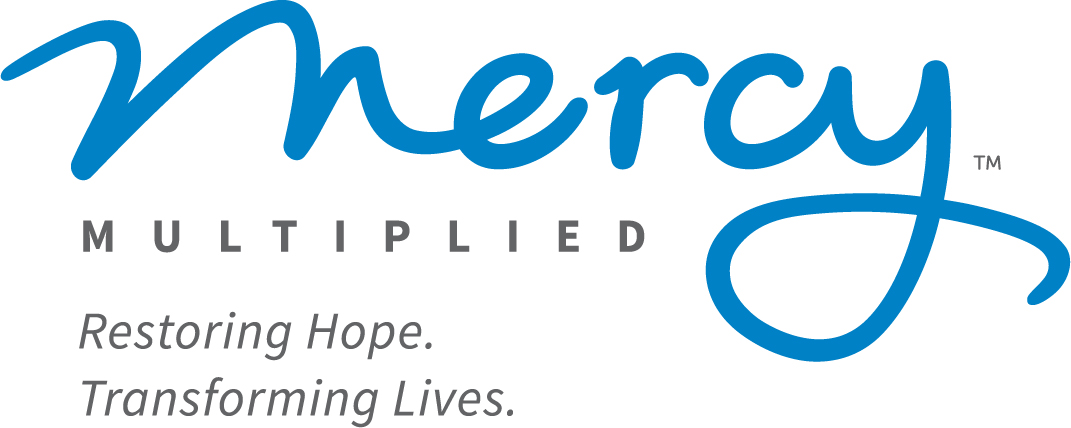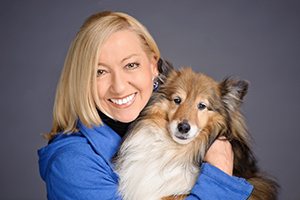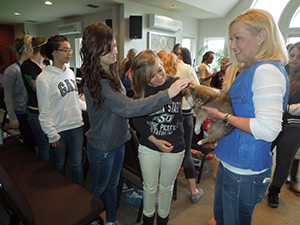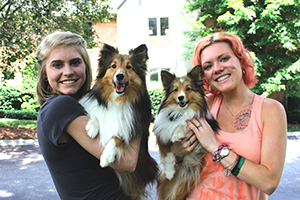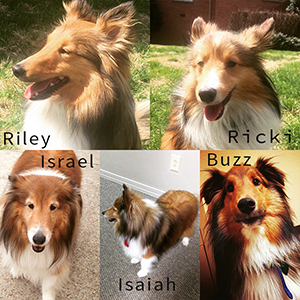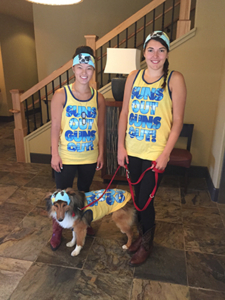Mercy Dog Moms
May 31, 2016
It’s been said that “a dog is man’s best friend.” But at Mercy, it’s not just any dog – it’s a Sheltie. And it’s not just any “man” – it’s a Mercy dog mom!
Mercy Multiplied’s Founder and President Nancy Alcorn first introduced the dog mom concept to the Mercy residents through an overflow of her love for Shelties – in particular, one beloved Sheltie named Jude. Alcorn’s puppy Jude was born December 1998 and quickly became a regular visitor at the Nashville Mercy home, attending programs at the home with Alcorn and staying with the residents while Alcorn traveled for numerous speaking engagements.
Over the years, many of the residents became close to Jude during their stays at Mercy. Some of the young women even affectionately called him “undercover counselor,” “Mercy superhero,” and “little protector.” In a memory book published after his graduation to Heaven in 2013, some of his dog moms recalled their treasured Jude memories:
“I had terrible nightmares and often avoided sleeping so I wouldn’t have to relive my traumas in my sleep. Once Jude started sleeping in my room, he would let me pet him until I calmed down and fell back asleep whenever I had a nightmare. There were so many nights that he was able to calm me down when I felt like things would never be okay…it was like he knew what I needed and provided that sweet and healing presence. I really loved Jude and am so grateful that he was a part of my Mercy experience.” – Kelly, Mercy dog mom
“Jude was always a feisty little friend, but there were parts of my day that I would just lay with him. Many nights before bed, I would lay on my bedroom floor and tell him all about my day. When I was sad I would just lay next to him. He kept me going while I was at Mercy.” – Stephani, Mercy dog mom
“Jude helped me through a lot of pain while I was at Mercy working through my past! It’s like he could sense I was hurting and was the best ‘cuddler.’” – Jena, Mercy dog mom
Recognizing the impact that Jude had on the Mercy residents, Alcorn wanted to create more opportunities for pups to be a part of the Mercy program. Now many of the Mercy homes include Shelties that are cared for by dog moms. Currently, Ricki, Israel, Isaiah, and Buzz are the furry friends that call Mercy Multiplied “home” and several Mercy residents “mom.”
Generally speaking, a Mercy resident becomes a “dog aunt” before ever being considered for a “dog mom” role. A resident can request to be a dog aunt after she has been in the program for at least 30 days. This gives a young women time to adjust to her new schedule, establish relationships with the other girls in the home, and settle into her counseling. Once Mercy staff observe that a resident is adjusted to the Mercy program, she is approved to assist dog moms as necessary. This can include various activities like washing and brushing the dogs or taking the dogs outside if the dog mom is in school or on dinner detail.
Once a resident reaches her 90-day evaluation, she can be considered for an available dog mom role. These transitions occur if a current dog mom is graduating from Mercy or needs to focus on other parts of the Mercy program and has asked to be relieved of her duties. Once a resident is a dog mom, she typically serves in this role for three or more months. During that time, she is responsible for all things that any dog owner would be: feeding, training, exercise, play time, and kenneling the dog in her room at night.
Over the years, many Mercy dog moms and residents alike have experienced the powerful dynamic of Sheltie friendship and love as they seek healing for their lives. As dog mom Michele put it, this special part of the Mercy program impacts lives “in ways we don’t even know.”
For more information on Mercy’s residential program, click here.
